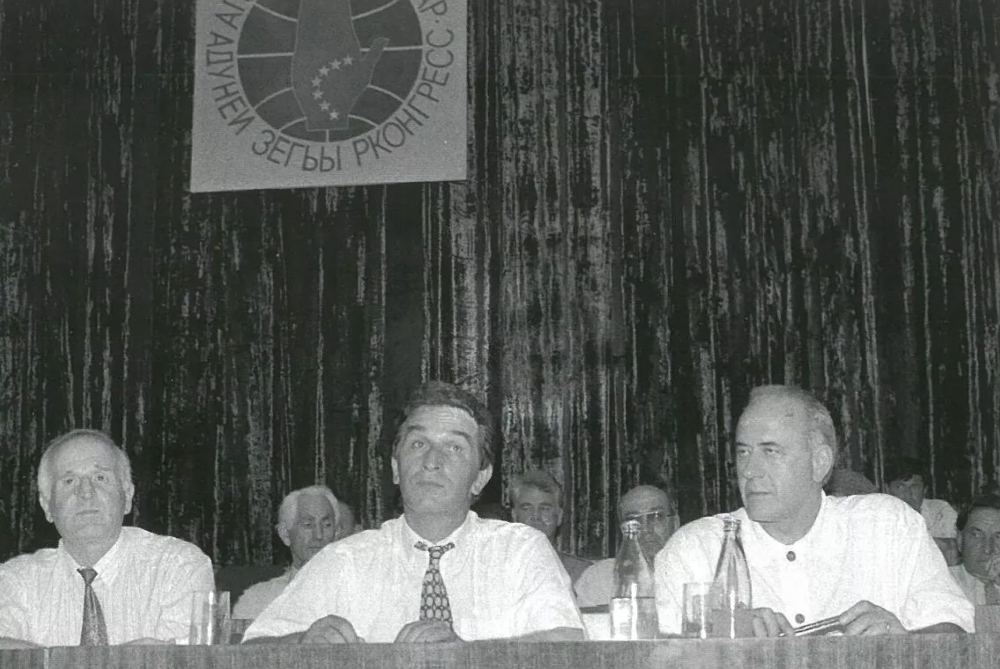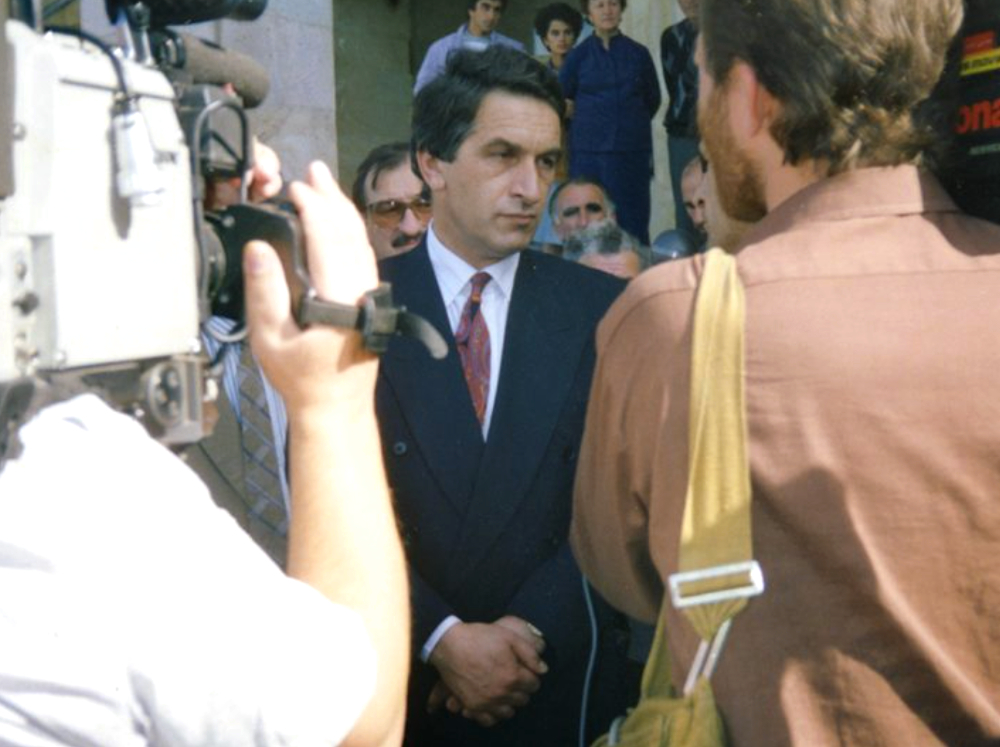7th and 8th of October 1992: The First World Congress of the Abkhaz-Abaza People

7–8 October 1992 marked a significant milestone for the Abkhaz-Abaza (Abazin) community as the inaugural World Congress convened in the historic village of Lykhny. This event unified representatives from both local and international diasporas, alongside delegates from Circassia; Kabarda, Adygea, Shapsughia, and Abazinia. Amidst the Patriotic War (Georgian-Abkhazian War) of 1992–1993, the Congress played a crucial role in enhancing the morale and solidarity of the Abkhaz people.
Organising the Congress
The initiative to hold the first World Congress of the Abkhaz-Abaza People was undertaken prior to the outbreak of the Patriotic War in 1992–1993. Initially planned for 28 September in Sukhum, the event was postponed due to escalating hostilities following Georgia's military aggression on 14 August.
On 6 October, just one day before the Congress, Abkhaz international militia forces successfully liberated Gagra and the settlements of Tsandrypsh and Gagrypsh from Georgian occupation. At 6:40 AM, Abkhazian flag was raised at the Abkhazian-Russian border along the Psou River.
Historian Aslan Avidzba explained, "Some organisers proposed holding the Congress in Cherkessk due to the dangers of war. However, Vladislav Ardzinba insisted that it be held in Abkhazia to symbolise the nation’s determination to win the war. The Congress needed to take place on Abkhazian soil, as the Abkhaz are the core of the Abkhaz-Abaza ethnic group."
Originally intended for Pitsunda, the venue was changed to Lykhny following infrastructure damage in western Abkhazia. Lykhny was selected for its historical significance as a site where major decisions in Abkhaz history were made.
Delegates and Leadership
Out of 140 invited delegates, 125 attended, representing regions throughout Abkhazia and the diaspora from countries including Türkiye, Germany, France, and the Netherlands, as well as Kabarda, Adygea, Shapsughia, and Abazinia.
In his opening speech, Abkhaz leader Vladislav Ardzinba condemned Georgia's aggression and outlined essential objectives to strengthen ties with the diaspora and promote the republic’s development.
"Although the war is a great tragedy, it has not intimidated us. Our people did not yield to the enemy. The aggressor underestimated our numbers, but we are supported by our brothers from the North Caucasus. Our overseas brothers have also taken up arms to defend Abkhazia. Today, our people are capable of both defending their homeland and resolving peaceful matters. The subjugation of the Abkhaz-Abaza people is impossible, as the war has clearly demonstrated," Ardzinba stated.
He emphasised that one of the primary goals was to build a democratic state in Abkhazia, highlighting that the Parliament had adopted the Universal Declaration of Human Rights. Ardzinba also called for a reassessment of Abkhazia’s economic policies with the involvement of diaspora members, stressing the importance of maintaining strong connections with the global Abkhaz-Abaza community.
"Our desire for reunification in our historic homeland is a natural desire of the people, corresponding to universal norms of morality, human rights and generally accepted rights in the civilized world."
― From the Declaration of the First World Congress of the Abkhaz-Abaza (Abazin) People.

Key Decisions of the Congress
Several proposals presented by Vladislav Ardzinba were unanimously approved by the delegates.
A major resolution granted legal rights to the descendants of the exiled compatriots, allowing all Abkhaz and Abaza living worldwide, particularly in Türkiye, the Middle East, Europe, and America, to reclaim their rights.
Another significant decision was the establishment of a Repatriation Committee. Ardzinba also highlighted the necessity of opening consulates and representative offices in countries with substantial Abkhaz-Abaza populations, especially in Türkiye and Russia, with plans to extend to other nations.
The Congress approved granting Abkhaz citizenship to all Abkhaz-Abaza descendants, regardless of their residence. This policy was later formalised through citizenship laws. The Repatriation Committee was officially established by the Abkhaz Supreme Council on 23 March 1993, amid the conflict following the March Offensive.
Delegates also drafted an appeal to the United Nations, seeking international condemnation of Georgia’s aggression and support for the Abkhaz cause. The Congress issued a call to the Georgian people, urging them to denounce their government’s actions, and directly addressed Eduard Shevardnadze, demanding the withdrawal of Georgian forces. Additionally, the Congress extended messages of condolence and support to the families of those who died defending Abkhazia.
A message of gratitude was also conveyed to the peoples of the North Caucasus for their support in the fight against Georgian occupation.

Vladislav Ardzinba at the First World Congress of the Abkhaz-Abaza (Abaza) People. 8 October 1992.
Legacy of the Congress
One of the key outcomes of the First World Congress of the Abkhaz-Abaza People was the establishment of the International Association of the Abkhaz-Abaza People, with Taras Shamba appointed as its first chairman. Historian Aslan Avidzba noted that the Congress was instrumental in uniting the Abkhaz-Abaza people, reinforcing bonds that had been disrupted by a century and a half of displacement.
The Congress remains a defining moment in the modern history of the Abkhaz-Abaza people, showcasing their unity and resilience during one of the most challenging periods in their recent history.